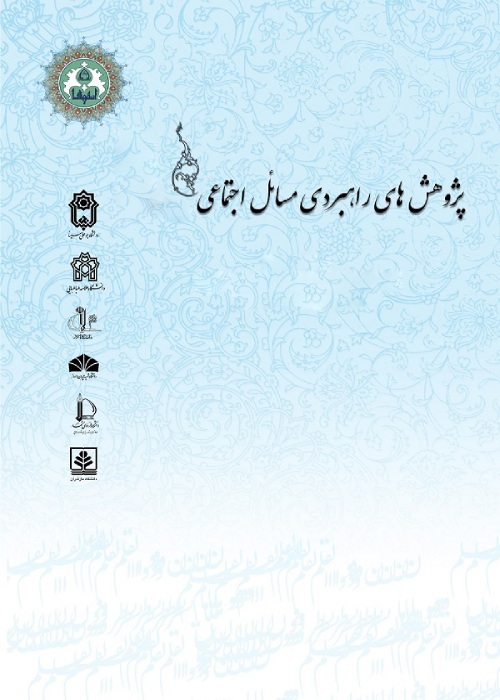Describing Children’s Lived Experiences of Parents with Emotional Divorce
An uplifting family is based on couples’ emotional bonds and mutual trust, which provide peace and mental security not only for the couples, but also for all members of the family. Despite this fact, marital conflicts and incompatibilities may lead to a dead end called divorce, which causes the most important damage to and decline of family health. It is the most important cause of its collapse. However, legal divorce rates reflect only a small part of couple’s conflicts, while many couples continue their cold and meaningless lives for various reasons and never get divorced. Dissatisfaction with the married life, reduced intimacy, and emotional distance between couples lead to emotional divorce. Emotional divorce is a type of abnormality that affects the family on a small scale and the wider community. Understanding the issue of emotional divorce and its consequences in societies is necessary because the shaking foundation of the family leads to its members’ feeling of emotional-psychological emptiness, as well as various moral and social harms to the society. Therefore, it is necessary to study its effects on different aspects of children’s lives. No society can claim to have health if they do not have healthy families. There is no social harm arisen regardless of the influence of the family. Since family is the first institution for individuals’ socialization, any rupture in the family institution leads to children’s negative socialization. Thus, it causes both personal and social harms. For this reason, it is necessary to study its effects on different aspects of children’s lives and describe children’s lived experiences of emotional divorce.
The purpose of this research was to study children’s lived experiences of parents with emotional divorce. This study was based on a qualitative approach with a descriptive phenomenological method. Phenomenology refers to the description of one or more individuals’ consciousness and experience(s) of a phenomenon. Its purpose is to gain a perspective on the participants’ life world and understand their personal perceptions, that is, to understand what everything means to them, the meanings, which are derived from their life experiences.To achieve this goal, 12 qualified adolescents and young people were selected by purposive and snowball sampling. In purposeful sampling, the researcher is free to choose the samples that are in accordance with the subject and goals. Due to the sensitivity of the subject, lack of accurate statistics, and the people’s unwillingness to talk about their private issues, the snowball method was also used for data collection. The data were collected through semi-structured interviews and analyzed via content analysis method.
The findings of the present study on the children’s lived experiences of emotional divorce led to the extraction of 96 sub-themes and 13 main themes, which included lack of solidarity in the family, parental communication inefficiency, children’s communication and emotional vacuums, transfer of parental problems to children, disruption of family boundaries, immersion of family in negative emotions, father’s harmful traits, mother’s harmful traits, children’s psychological disorders, modeling problems, children's concerns about parents, and coping strategies for stress tolerance and emotional divorce consequences. The results indicated that the children’s mental health was endangered due to the unbalanced and unhealthy functioning of their families with emotional divorce. The children considered their families as the cause of confusion and stress instead of providing a comforting place. Therefore, it is recommended to inform parents about the pernicious effects of emotional divorce and empower and promote their children’s psychological capitals.
- حق عضویت دریافتی صرف حمایت از نشریات عضو و نگهداری، تکمیل و توسعه مگیران میشود.
- پرداخت حق اشتراک و دانلود مقالات اجازه بازنشر آن در سایر رسانههای چاپی و دیجیتال را به کاربر نمیدهد.



